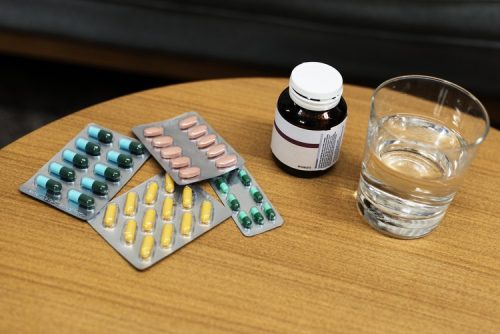Autoimmune diseases, as you undoubtedly know by now, take forever to get diagnosed. If you consult a specialist regarding the symptoms that keep on coming back at the age of 21, you might only receive a confirmation when you reach 25 or 30 years old. Some people tend to obtain a misdiagnosis as well, especially the illness brings forth other diseases. What happens then is that the problem does not get addressed as a whole.
Nevertheless, a real diagnosis cannot make your stress level go down, for the reasons that:
1. There’s No Cure
Hearing a medical professional say that all your symptoms are because of autoimmune disease does not entail that treating it will now be easy. In reality, there is not even a cure for this kind of condition. The doctors can prescribe multiple drugs to you, but they can merely keep other illnesses from progressing. They cannot make the disease go away.

“For starters, exercise releases endorphins, the body’s “feel-good hormones,” that can calm the mind and relax the body”, said Jenny C. Yip, PsyD, ABPP.
2. Doing Many Physical Activities Will Remain Problematic
According to the individuals who have been diagnosed with autoimmunity, this confirmation solidified the fact that they may never feel 100% energized. You can sleep the entire day; you can relax, eat, and relax. However, before lunch comes the next day, you might become so tired that the complete rest from yesterday did not seem to do anything for you. That is the reason why you may only be able to work for a couple of hours a day or travel short distances alone.
“Keep current about the benefits of exercise and the outdoors and share that information.” – Jennifer Lager, PsyD
3. You Have To Pay Many Doctors
Autoimmune disease tends to stress you out financially as well because you likely need to receive health monitoring from different specialists. You cannot insist on meeting one doctor since autoimmunity does not merely target a single body part. It can affect practically everything, from the bones to the internal organs to the skin. If your kidneys act up first, you have to see a nephrologist. In case you develop arthritis, you have to go to a rheumatologist. As the list of body parts that require medical attention lengthens, so does the bill that you ought to pay for after every check-up.

4. Convincing People About Your Disease Is A Challenge
Telling colleagues and acquaintances that you cannot attend this function or go to that special gathering because your autoimmune illness is on attack mode is not always stress-free either. It is not a common condition, after all, so folks who have never heard about the disease until now might assume that you are only making it up to skip the event. Others may accept that you feel ill, but they might think that you’ll feel better after taking paracetamol or something. It may take a while for such people to realize that your illness is not a product of your imagination.
5. You Cannot Be Independent
Like we’ve mentioned earlier, autoimmunity limits the things you can do physically on your own. Even the simple task of loading and unloading your washing machine at home may be difficult at times; that’s why you might need assistance from your spouse or another family member. Going around the supermarket to get your supplies can be hard as well, so you may have to rely on the delivery service that the local grocery store provides.

Final Thoughts
Autoimmune disease can be stressful to deal and live with – that is for sure. You cannot go anywhere without feeling exhausted. You ought to take a lot of pills every day for various illnesses that you may have contracted due to your immune system turning against you. Nevertheless, take things one step at a time. You will eventually manage to understand your autoimmunity – just don’t expect it to happen as soon as you get the diagnosis.
Take note about what Erin Mendoza, PsyD said: “Self-compassion is not tough love or false hope, but connecting the pain with understanding, curiosity, and a sincere wish for relief based on kindness and love rather than criticism and disgust.”
